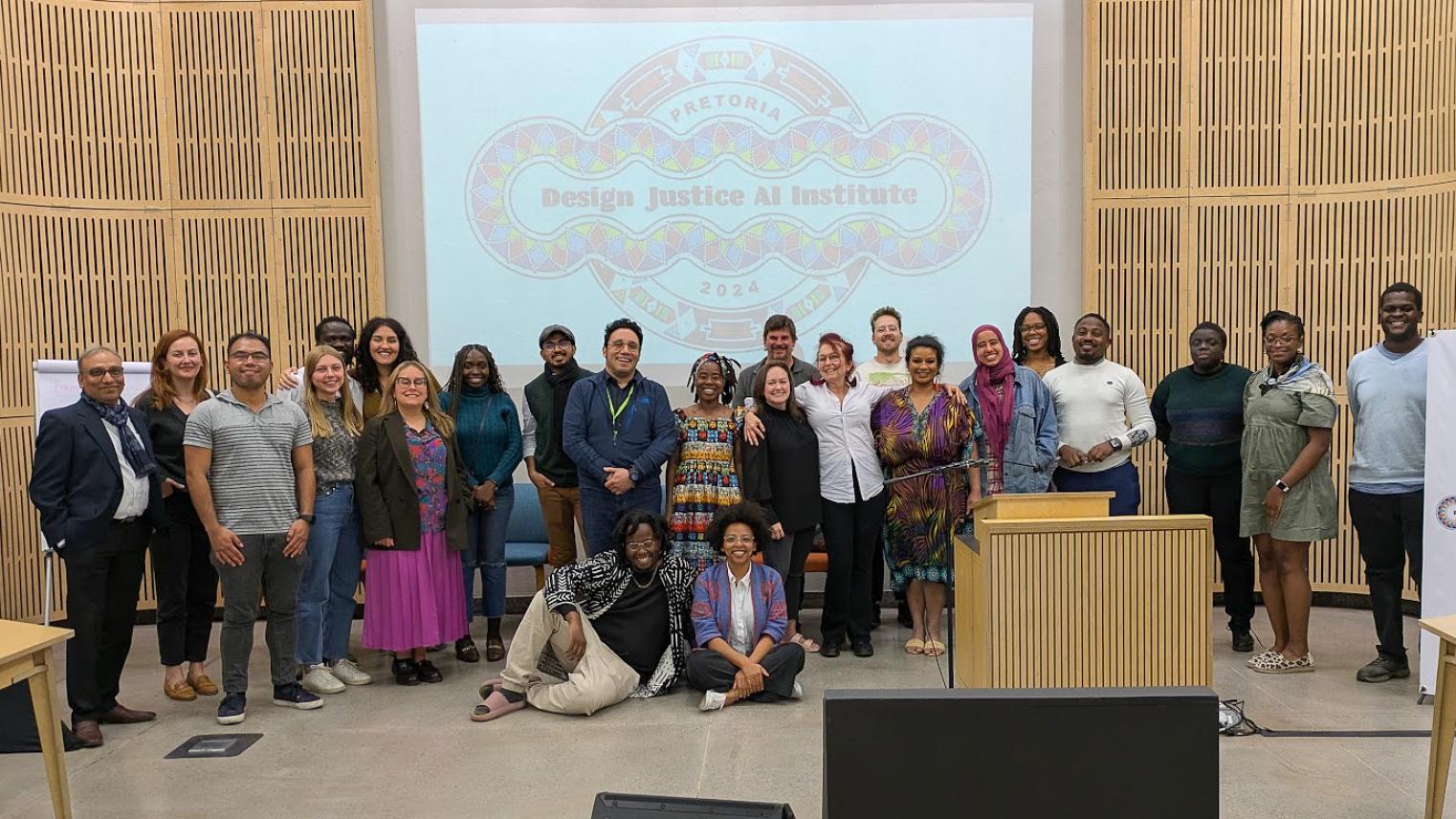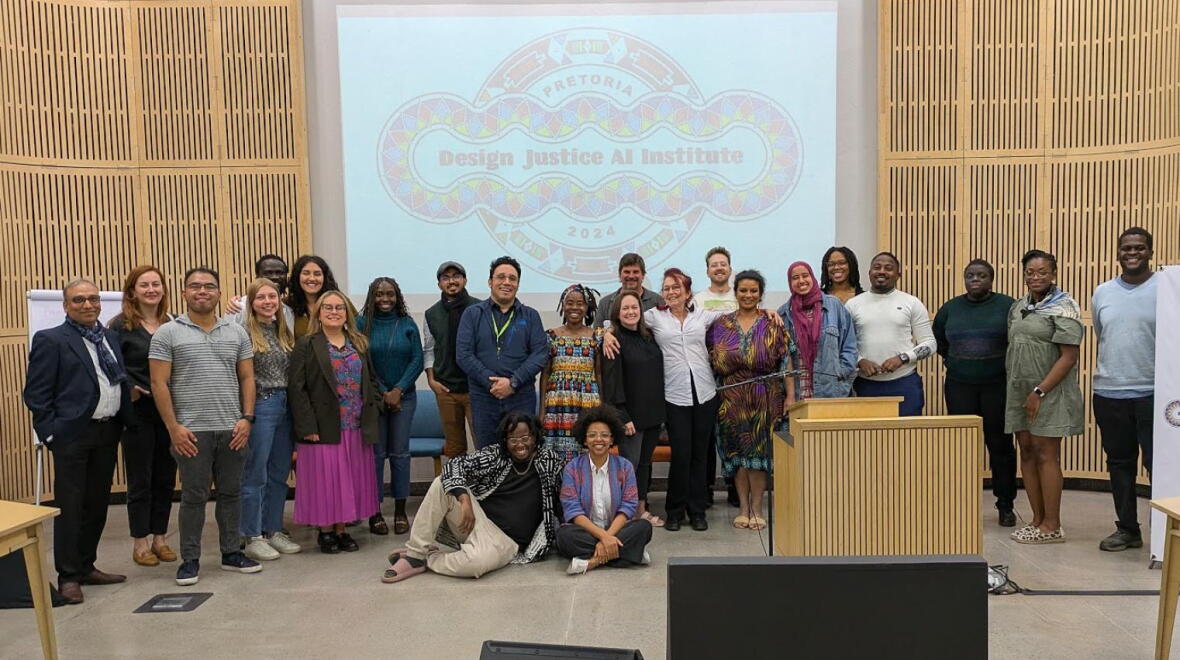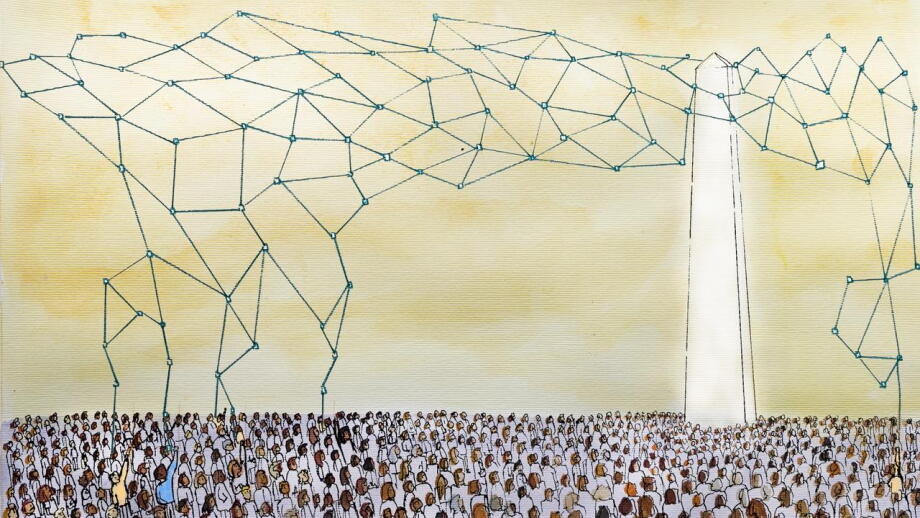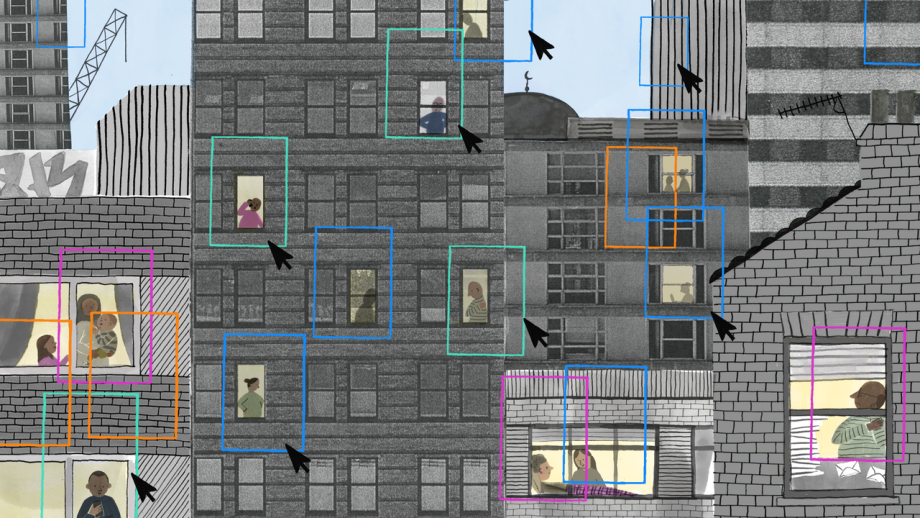In short:

Photo credit: Professor Vukosi Marivate
The Global Humanities Institute on Design Justice AI (DJAI) was held on 30 June to 13 July 2024 in Pretoria, South Africa, organised by a team of researchers from Rutgers University, University of Pretoria, The Australian National University (ANU), University of Connecticut and Wayne State University.
Design Justice AI is an interdisciplinary collaboration exploring community-centred engagement with “Generative AI” – the statistical modeling and synthesis of human languages, communication, arts, and cultures. The Global Humanities Institute, sponsored by the Consortium of Humanities Centers and Institutes and the Mellon Foundation, brought together emerging and senior scholars to work on strategies for redefining the discourse surrounding generative AI and fostering inclusive and ethical frameworks in technological development.
RegNet Director Professor Kate Henne and Professor Kath Bode (ANU College of Arts and Social Science), both Institute co-organisers, facilitated sessions on design justice practices, racial and gender equity and questions of decolonising AI. Dr John Noel Viaña and Will Orr, members of the ANU Justice and Technoscience Lab at RegNet, presented their work on design justice in generative AI for mental health and in dataset creation.
Reflecting on the workshop, Professor Kate Henne was impressed with the depth of engagement and collaboration at the Institute, highlighting the importance of cross-disciplinary and cross-continental dialogues about these technologies.
“It was an amazing experience to speak with and learn from inspiring scholars and practitioners not only from different fields but also from different parts of the world. Being together for two weeks at the Future African campus meant we could engage meaningfully and intensively. It was a special forum, one that enabled us to explore and appreciate the depth and range of everyone’s insights.”
“A particular highlight was the Discotech, which is short for discovering technology. The event drew on design justice principles and practices that cultivate shared learning opportunities in the context of people’s neighbourhoods. It was great to listen to community and institute participants’ reflections on different technologies as we interacted with the tools together,” she said.
Dr John Noel Viaña presented a talk on “From ChatGPT to ChatCBT: Design Justice in Generative AI for Mental Health”. He illustrated how insights from humanistic fields and discourses on anti-racism can be used to interrogate whether AI chatbots can and should be used in mental health contexts, especially by people from racial and ethnic minority backgrounds.
He also gained invaluable insights and engaged in profound discussions with artists, computer scientists and humanities and social science researchers.
“I feel immensely privileged and grateful to be part of the DJAI in Pretoria. The two-week workshop taught me not only how generative AI could promote social good, but also how certain applications could be environmentally damaging and be exploitative of workers from the Global South.”
“While generative AI can encourage greater use of local and Indigenous languages, it also has the potential to promote techno-solutionism and perpetuate bias towards marginalised groups. I am really excited share what I have learned with students in our technology governance courses,” he said.
The next phase of the DJAI involves supporting laboratories that aim to incorporate design justice principles, examining equity and ethical issues in practice. Through collaborations with community stakeholders, researchers and students, these activities strive to promote machine learning systems that prioritise safety, accountability and inclusivity. Institute participants will also curate a wide range of resources, including blogs, research templates, interviews, experimental datasets, recorded lectures, pedagogical practices and peer-reviewed articles, to foster awareness on and understanding of AI technologies and their social and cultural impacts.
For more details on the program, visit Design Justice AI’s website here. Panel discussions are available through the Data Science for Social Impact research group’s YouTube channel.
This article was originally published on the ANU College of Asia Pacific page.
Being together for two weeks at the Future African campus meant we could engage meaningfully and intensively. It was a special forum, one that enabled us to explore and appreciate the depth and range of everyone’s insights.”
You may also like
Think piece: AI isn't be about cost cutting and it will be empowering for individuals
It's not 2022 any more; I don't think our regulators and governments have noticed, and so I don't understand how to comply with the latest standards.
The three questions agencies must ask themselves to use AI responsibly
When it comes to implementing the Government’s new policy on the responsible use of AI, one element in particular will be critical: AI leadership. That’s especially true when it comes to the…
Think Piece: Why Platforms Shouldn’t be Publicly Controlled
Should platforms be publicly controlled? It’s tempting to answer ‘Yes’. Public control seems naturally aligned with public interests because it empowers people to take care of themselves.




